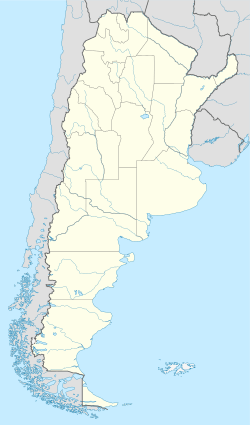Averías facts for kids
Quick facts for kids
Averías
|
|
|---|---|
|
Municipality and village
|
|
| Country | |
| Province | Santiago del Estero Province |
| Department | General Taboada |
| Elevation | 256 ft (78 m) |
| Population
(INDEC 2001)
|
|
| • Total | 162 |
| Postal code |
3766
|
| Area code(s) | 03845 |
Averías is a small town and village located in the General Taboada department. This area is part of the Santiago del Estero Province in Argentina. It is about 229 kilometers (142 miles) away from Santiago del Estero, the capital city of the province.
Contents
Averías: How Many People Live Here?
In 2010, Averías had 371 people living there. This was a big jump from 2001. Back then, only 162 people lived in the town. This means the population more than doubled in less than ten years!
Understanding Earthquakes in Santiago del Estero
The Santiago del Estero area often experiences earthquakes. These quakes are usually not very strong. Sometimes, there's a period of about 40 years without any medium or serious earthquakes.
Deep Earthquakes: Shaking from Far Below
On January 1, February 21, and September 2, 2011, some strong earthquakes happened in the region. They measured 7.0, 5.9, and 6.9 on the Richter Scale. This scale measures how strong an earthquake is.
Even though these quakes were powerful, they didn't cause much damage or hurt anyone. This is because they happened very deep underground, about 600 kilometers (370 miles) down. However, the shaking was still felt in tall buildings in many provinces, including the big city of Buenos Aires.
Historical Earthquakes and Building Safety
On July 4, 1817, a very strong earthquake hit the area. It was a 7.0 on the Richter Scale. This quake caused serious damage in the center and north of the province. Houses fell down, and big cracks appeared in the ground. The shaking lasted for about a week.
Scientists also use the Mercalli Scale to describe how much an earthquake is felt and how much damage it causes. The 1817 quake was estimated to be an VIII on this scale. The ground even had "liquefaction," which means the soil behaved like a liquid. Sand came out of cracks that were up to 1 meter wide and over 2 meters deep! Some houses were covered in more than 10 centimeters of sand.
Even though earthquakes have happened in Argentina for a very long time, the quake on March 20, 1861, was very important. It was the strongest earthquake ever recorded and documented in the country. After this, local governments became much more careful. They started making rules about how buildings should be built to be safer.
However, it was the 1944 San Juan earthquake on January 15, 1944, that truly made governments understand how serious the earthquake risk was in the region. Since then, building codes have been very strict to protect people and buildings.
See also
 In Spanish: Averías (Argentina) para niños
In Spanish: Averías (Argentina) para niños
 | James Van Der Zee |
 | Alma Thomas |
 | Ellis Wilson |
 | Margaret Taylor-Burroughs |


